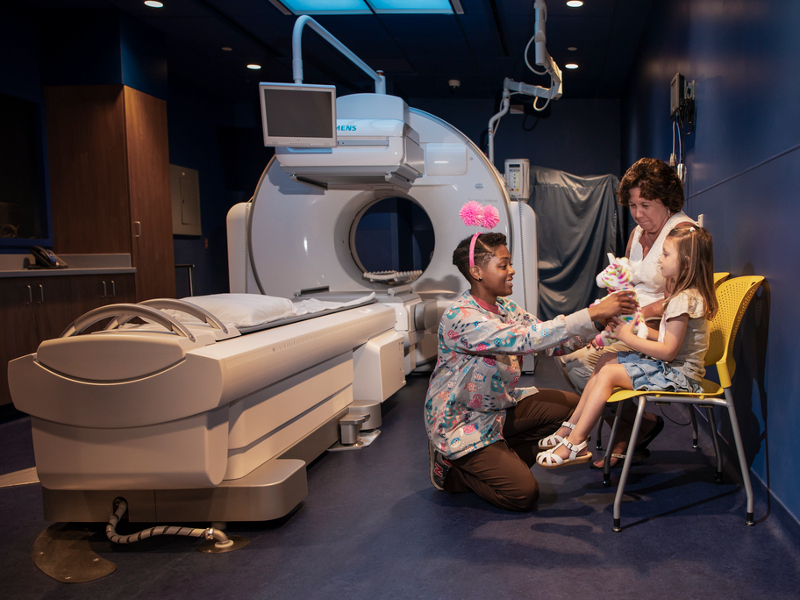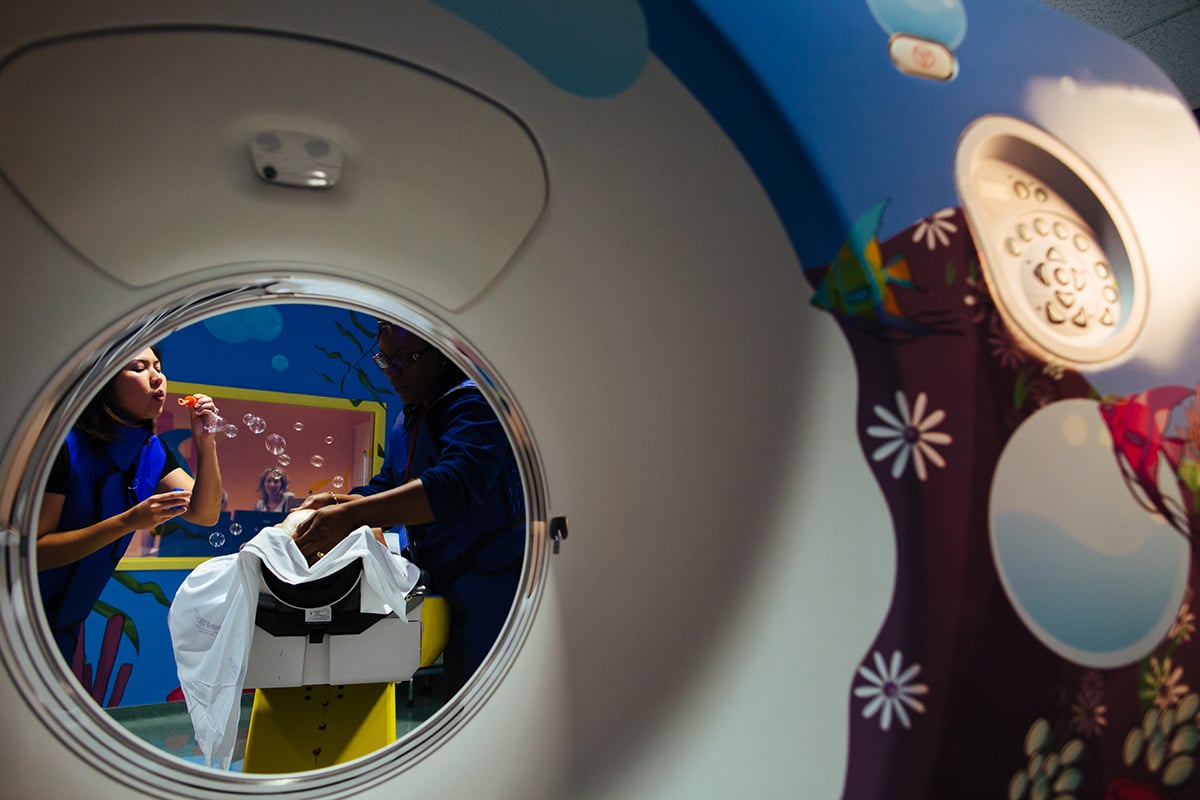Frequently Asked Questions
At Children's National, we understand that families have many questions about their child's condition and care. Here is a list of frequently asked questions regarding treatment in the Interventional Radiology Program.
Isn’t radiation harmful to my child?
We understand the concern parents have about radiation exposure, so we follow the Alliance for Radiation Safety in Pediatric Imaging guidelines to minimize the radiation dose delivered to our patients. Children are more sensitive to radiation than adults but the steps we take to minimize the short and long-term impact on your child's health include:
- Constant awareness within the medical team and our institution for the need to decrease radiation dose
- A commitment to make changes in our daily practice by working with technologists and physicists to decrease the radiation dose
- Consultation with physicists and manufacturers about the protocol of machines that deliver radiation and then downsizing those protocols as applied to children
- During interventional procedures that utilize fluoroscopy (x-rays), we step as lightly as possible on the fluoroscopy pedal that delivers the x-rays in an effort to use the least amount of radiation as possible
- We plan parts of the procedure that use more radiation (runs) well in advance and minimize the use of magnification, which also delivers a higher dose
- Whenever possible, we will use ultrasound or MRI instead of CT or fluoroscopy
What if my child has disabilities?
It is important that you call our department and communicate to us if your child has any disabilities or health issues you feel that the doctor should know about before the procedure is done.
What is my role before, during and after the procedure?
If you are the legal guardian, a copy of a court order that states you are the legal guardian is required in order to give permission for the procedure. Please notify us if you are neither the parent nor legal guardian when scheduling the procedure so that the appropriate steps can be taken to obtain consent from a third party.
When scheduling the procedure, a nurse will ask you about your child's medical history, including current medications and any history of adverse reactions to anesthetics. This is the best time to ask questions about the procedure or anesthesia. If the procedure involves sedation, your child will not be allowed to eat or drink prior to the procedure.
Please be sure to arrive on time on the day of the procedure. Failure to arrive on time can result in cancellation of the procedure. Please check in with the outpatient registration in the department of radiology on the second floor at least 45 minutes prior to the scheduled appointment. It is very important that any procedure request forms from a referring physician are faxed ahead of time. Proof of insurance must be provided at the time of registration. Once registration is complete, a nurse or technologist will retrieve you and your child from the waiting area and bring you to another room for intravenous line placement and other preparations.
As a parent or guardian, the most important thing you can do to help is to stay calm and relaxed throughout the entire process, which in turn will help your child stay calm. We encourage good communication about the procedure with your child and even holding them before the procedure begins.
Child Life Specialists are available to answer questions about preparation for the procedure and support before and after. At your request, they may also be available during your child's appointment to help explain the procedure in a manner targeted to their age range. After the procedure, the doctor will provide a written report of the results to you directly or the doctor who requested the procedure to be done. You have the right to ask any questions at any time before or after the procedure and are welcome to contact the interventional radiologist directly with such questions or to discuss the results.
Who are interventional radiologists?
Our pediatric interventional radiologists are board-certified diagnostic radiologists, which means they are expertly equipped with the knowledge to interpret all of the images acquired for your child's treatment. They are constantly using their skillset as diagnosticians and specialized surgeons to plan interventions that lead to the least risk and discomfort for their patients. Pediatric interventional radiologists work closely with other pediatric specialists, such as pediatric surgeons and hematologists, to ensure the highest quality of care is delivered in a safe manner.





